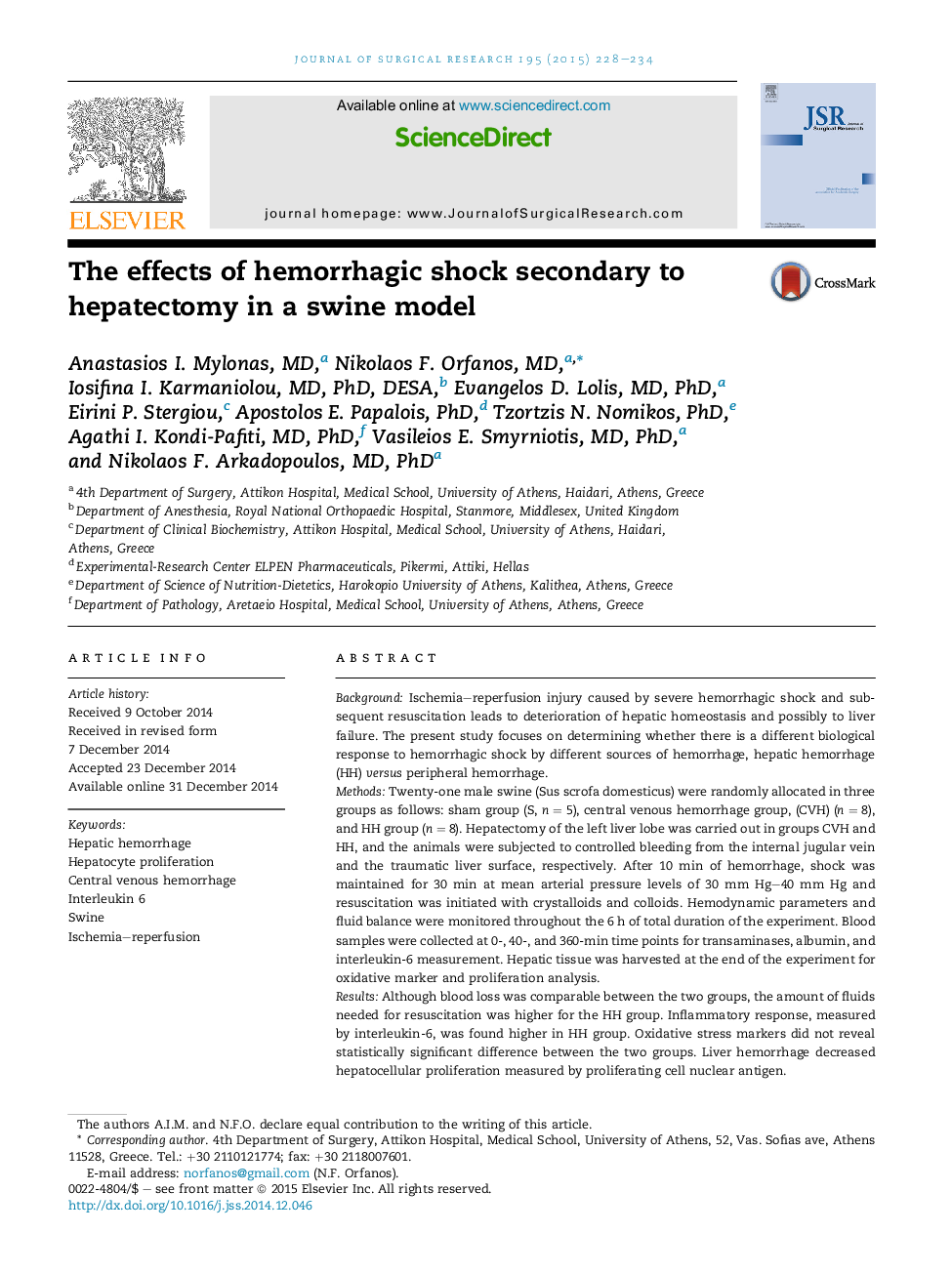| کد مقاله | کد نشریه | سال انتشار | مقاله انگلیسی | نسخه تمام متن |
|---|---|---|---|---|
| 4299893 | 1288404 | 2015 | 7 صفحه PDF | دانلود رایگان |
BackgroundIschemia–reperfusion injury caused by severe hemorrhagic shock and subsequent resuscitation leads to deterioration of hepatic homeostasis and possibly to liver failure. The present study focuses on determining whether there is a different biological response to hemorrhagic shock by different sources of hemorrhage, hepatic hemorrhage (HH) versus peripheral hemorrhage.MethodsTwenty-one male swine (Sus scrofa domesticus) were randomly allocated in three groups as follows: sham group (S, n = 5), central venous hemorrhage group, (CVH) (n = 8), and HH group (n = 8). Hepatectomy of the left liver lobe was carried out in groups CVH and HH, and the animals were subjected to controlled bleeding from the internal jugular vein and the traumatic liver surface, respectively. After 10 min of hemorrhage, shock was maintained for 30 min at mean arterial pressure levels of 30 mm Hg–40 mm Hg and resuscitation was initiated with crystalloids and colloids. Hemodynamic parameters and fluid balance were monitored throughout the 6 h of total duration of the experiment. Blood samples were collected at 0-, 40-, and 360-min time points for transaminases, albumin, and interleukin-6 measurement. Hepatic tissue was harvested at the end of the experiment for oxidative marker and proliferation analysis.ResultsAlthough blood loss was comparable between the two groups, the amount of fluids needed for resuscitation was higher for the HH group. Inflammatory response, measured by interleukin-6, was found higher in HH group. Oxidative stress markers did not reveal statistically significant difference between the two groups. Liver hemorrhage decreased hepatocellular proliferation measured by proliferating cell nuclear antigen.ConclusionsOur study provides evidence that HH entails worse consequences for the hepatocytes than systemic hemorrhage. Higher needs for resuscitation fluids, decreased proliferation, and augmented inflammatory response when HH takes place are findings with possible clinical importance in liver surgery and trauma.
Journal: Journal of Surgical Research - Volume 195, Issue 1, 1 May 2015, Pages 228–234
